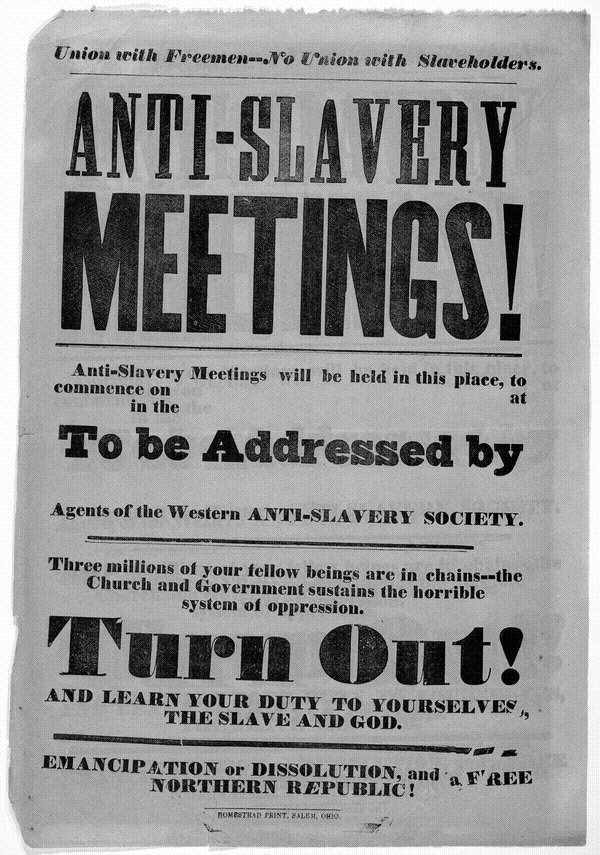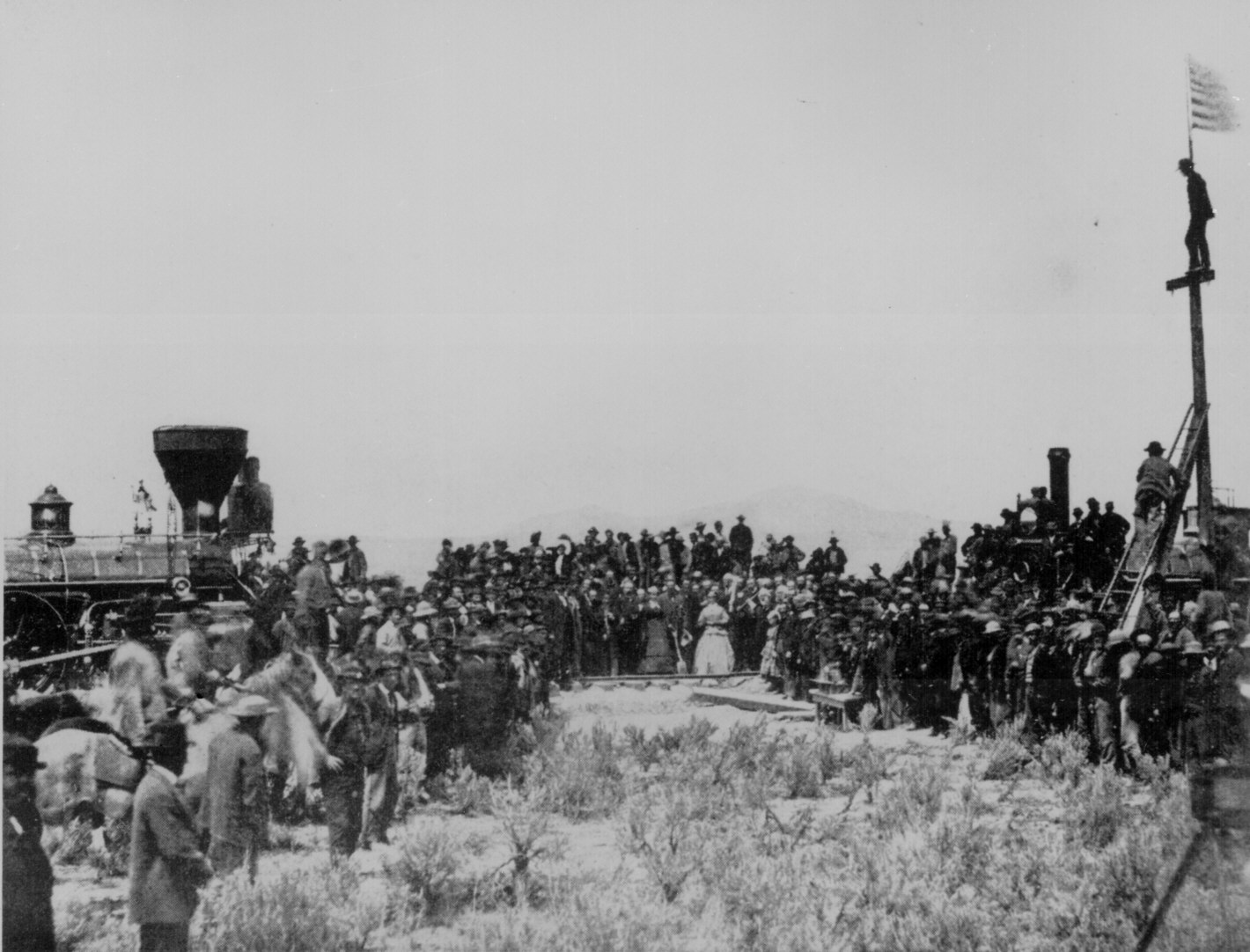|

Poster
for Abolitionist Meeting, Salem, Mass., 1850
American Memory Collection, Library of Congress,
Broadsides Portfolio
137, Folder 4
|
Questions to consider
1. Why did the antebellum period produce so many reform movements?
2. What was the appeal of evangelical protestantism?
3. What was the political and social importance of the Second Great Awakening?
4. Analyse the public role of women in the antebellum period.
5. What was the relationship between religion and reform in this period?
Primary sources
Peter Cartwright describes the Cane Ridge meeting, 1801
William Lloyd Garrison,
editorial from the first issue of The Liberator, Jan 1, 1831
Frederick Douglass, "What
to the slave is the fourth of July?", speech, July 4, 1852
Elizabeth Cady Stanton, "Seneca
Falls Declaration" (1848)
Alexis de Tocqueville on religious enthusiasm
Introductory Reading
Lori
D. Ginzberg, "Moral Suasion Is Moral Balderdash: Women, Politics
and Social Activism in the 1850s," Journal of American History 73
(1986): 601-622.
Daniel
Walker Howe, "Awakenings of Religion", from What Hath God Wrought (2008),
pp. 164-202
Further
reading
Daniel
Walker Howe, "The Evangelical Movement and Political Culture in the
North During the Second Party System," The Journal of American History,
Vol. 77, No. 4. (Mar., 1991), pp. 1216-1239.
Daniel Walker Howe (ed.) Victorian America. (1977) pp. 3-81.TEACHING
COLLECTION MAIN 3298
Paula Baker, "The
Domestication of Politics: Women and American Political Society, 1780-1920," American
Historical Review 89 (1984): 620-47
Mary P.
Ryan, Women in Public: Between Banners and Ballots, 1824-1880 (1990)
Anne M. Boylan, "Women
and Politics in the Era before Seneca Falls", Journal of the
Early Republic 10 (1990)
Bruce Levine,
Half Slave and Half Free. ch. 3, 5-6.
Ronald G. Walters, The Antislavery Appeal: American Abolitionism after
1830 (1978)
Anne C. Rose, Voices of the Marketplace: American thought and culture,
1830-1860 (1995)
Richard J. Carwardine, Evangelicals and Politics in Antebellum America
(1993)
Walter Merrill, Against wind and tide: a biography of William Lloyd
Garrison (1963)
Eric Foner, Free Soil, Free Labor, Free Men: The Ideology of the Republican
Party Before the Civil War, esp. pp. 11-40.
Louis Filler, The Crusade Against Slavery 1830-1860 (1960)
Mary Ryan, Cradle of the Middle Class: The Family in Oneida County,
New York, 1790-1865 (1981)
Websites
Library of
Congress exhibition on religion and the American Republic
Freedom's Journal
Samuel J. May Anti-Slavery Collection at Cornell
|
